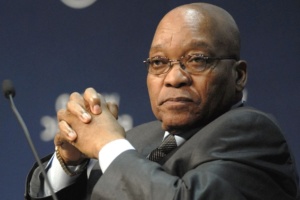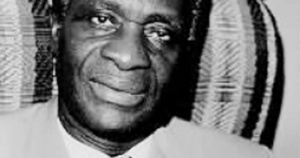By Peter Olorunnisomo – The notion of herbs centuries ago was embraced in almost all cultures who recognised its application to man as healing remedies. It is this scientific base-point that derived largely from cultural leanings that became the foundation for pharmaceutical research.

Indeed, there was a time that apothecaries thrived in the western world and verily in all civilisations. The making of poison, which use has been proven to have political significance in the cause of history, is one such classic example of the use of herbs.
Most classical, ancient cultures vary their concept of herbs from the mere identity of apothecaries but rather as food. Vegetables were used to cure simple ailments as constipation and diarrhoea simply by ingesting it as food condiments in prepared, regular meals.
This, however, becomes the strength of African cultures as the plains of the continent are awash with over a million diverse plants with not the margin of a tenth being explored for advanced medical research.
Most adherents of the African traditional medicinal culture readily blame this as one of the fall-outs of the incursion of the west into Africa. Not only do most Africans today ‘ape’ the west so badly but find that they have lost their tried and tested cultural values in the process.

Speaking to one of Nigeria’s foremost trado-medical practioners years ago, Professor Adeoye Lambo who is credited as Nigeria’s first western trained psychiatrist, he stated his faith the efficacy of trado-medicne and pioneered the use of modern curative techniques combined with traditional religion and native medicines to great success in running one of Nigeria’s most noted Psychiatric Hospitals in Aro.
It would appear that the need to further exploit this medical philosophy especially by Africans in re-discovering the value of their medicinal heritage and pharmacological potential as a money spinner to heal the world cannot be over-estimated.
This spins the notion of cannabis on its head given that it has been black-listed as a dangerous drug to the level of criminality. Yet, it is to be noted that it has a different tag in the Netherlands, licensed to be sold in shops freely as a recent story carried in an American state, and now taking for socio-political examination in South Africa.
But many profess that it is herb, a medicine, a natural provision for human healing. But it is also considered a drug to some and an addiction to others, the consumption of cannabis has steered debate in South Africa, on whether it should be decriminalized.
Gerd Hermann has the drug grown in his backyard garden, well aware it is illegal in the country. But this does not prevent him from locally producing medicinal oil from cannabis, a valuable product sought by many with medical complications.
But with legal obstacles, conducting the activity has not been easy for the 49-year old.
“People are desperate. Then they call me, they ask me for help. I cannot tell them no. But on the other hand, it becomes difficult to help more and more people when it is illegal”, Hermann said.
“Thanks to the cannabis oil, I have a new child. Because of this syndrome, he is particularly prone to cancer. When you have a child with such health problems, you have to react. Today I am ready to take the risk because the life of my son depends on this oil.”
Today, the product is consumed in hiding, even for therapeutic purposes.
A young boy suffering from the Costello syndrome, a rare disease that causes physical deformities and intellectual deficit takes the drug to relieve pain. For his mother, the miracle is in cannabis.
Her name withheld, she said, “it (cannabis) changed our lives. Thanks to the cannabis oil, I have a new child. Because of this syndrome, he is particularly prone to cancer. When you have a child with such health problems, you have to react. Today I am ready to take the risk because the life of my son depends on this oil”.
Many like this woman are advocating for the decriminalization of cannabis use, an idea that some anti-drug policy specialists have welcomed.
“It’s inevitable. There has to be a change. For the law today creates more problems than it solves. Decriminalization is self-evident, but legalization is another matter that needs to be considered even more seriously”, Shaun Shelly, a specialist in anti-drug policies.
The debate on the decriminalization of cannabis in South Africa started last March, when a regional court ruled its criminalization unconstitutional.
Parliament has two years to make a decision that would see cannabis products on shelves or banned and its consumption considered criminal.
Kindly follow us on twitter:@AfricanVoice2









